Supporting Cocoa Farmers
Supporting cocoa farmers
Your choice for Callebaut improves farmer livelihoods
Great chocolate needs great cocoa beans. With your choice for Callebaut Finest Belgian Chocolate, you make a choice for great taste and and to actively support local cocoa farmers in West Africa: of every block or pack you purchase, part is reinvested in farmer training and community projects – in partnership with the Cocoa Horizons Foundation.
The Cocoa Horizons Foundation is active in Côte d’Ivoire, Ghana and Tanzania. and focuses on two key pillars to address the challenges and achieve real progress: productivity and community.
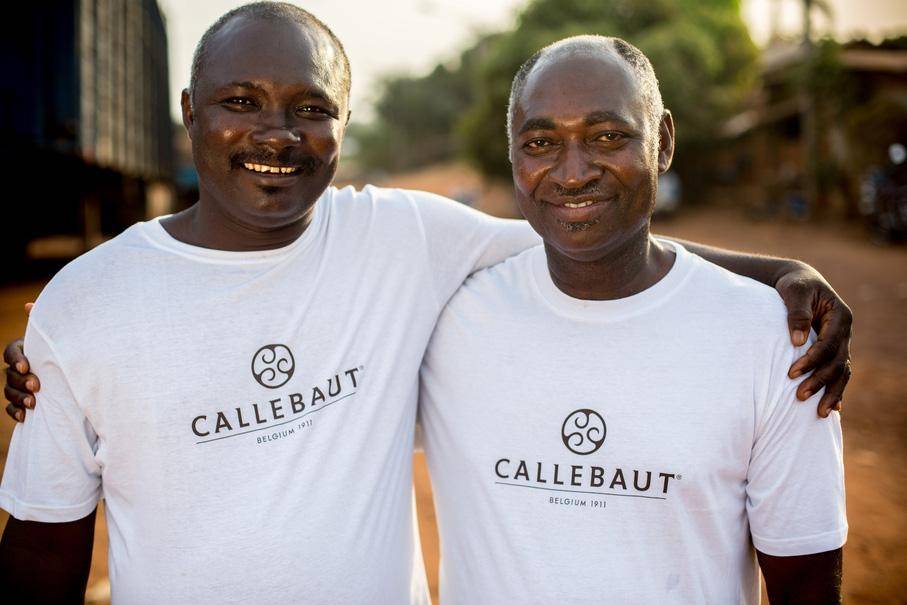
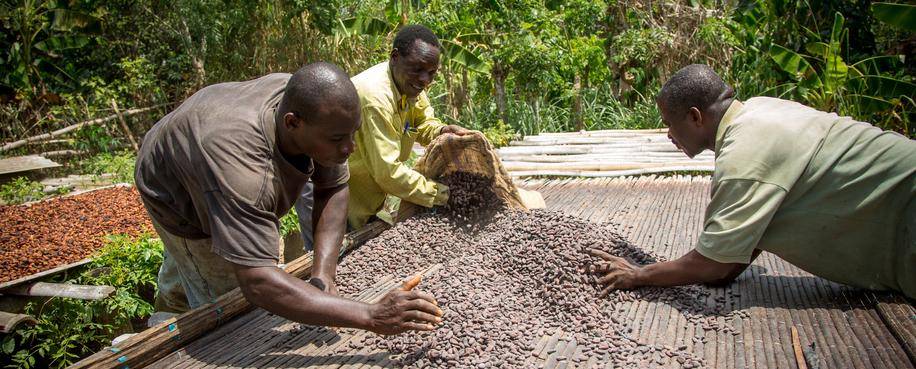
The aim of the sustainability programme
We believe that improving their livelihoods and supporting them in turning cocoa cultivation in a sustainable source of income will secure the future of cocoa farming, today and tomorrow.
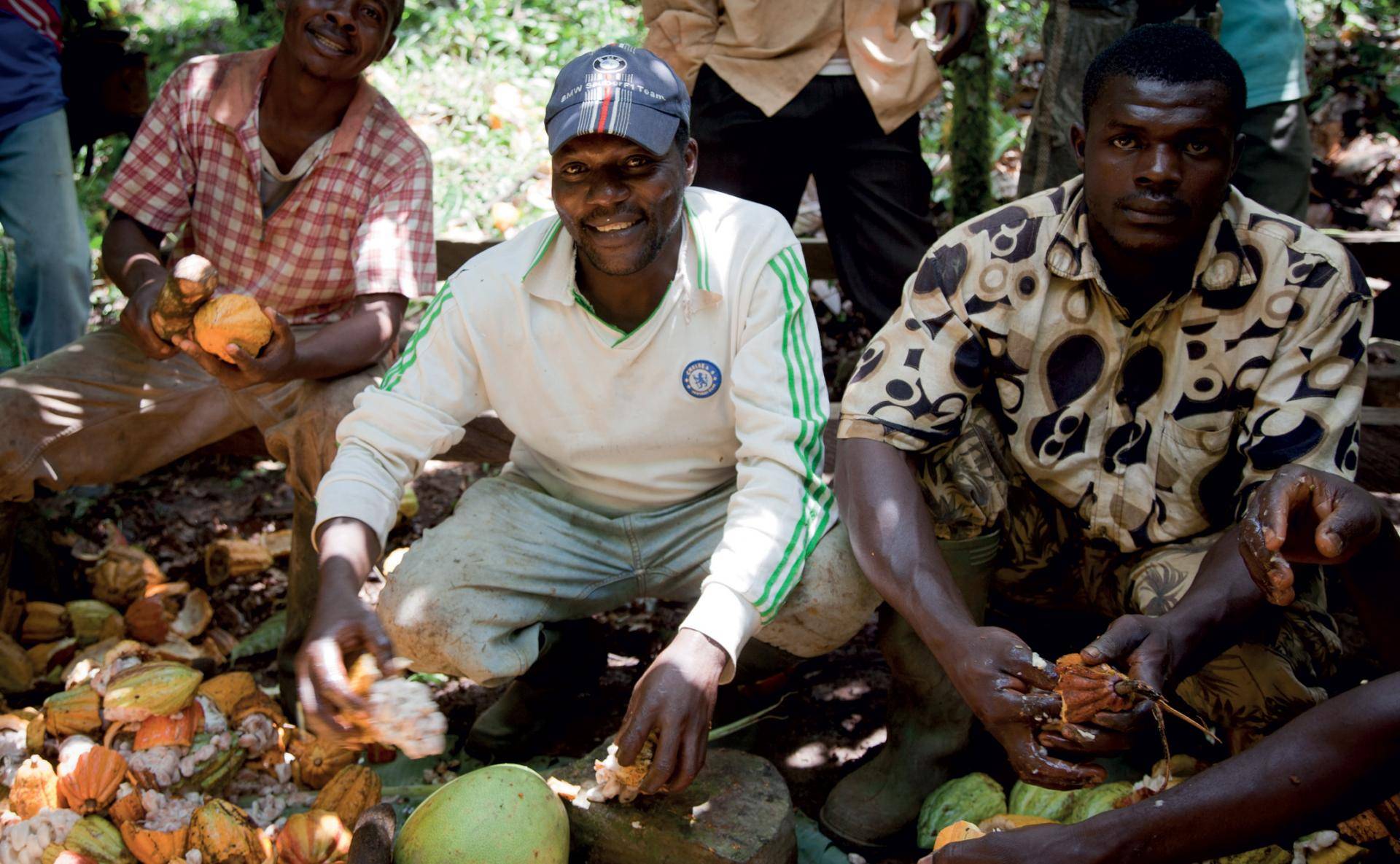
Supporting farmers to increase productivity
To safeguard the future of cocoa, we must support farmers to increase their yield per hectare, and help them earn a better income from cocoa farming. Better cocoa production practices are needed to ensure that cocoa farming is a viable option also for the next generation of growers, including young women.
We address this in two ways: by training farmers, and by paying a farmer premium.
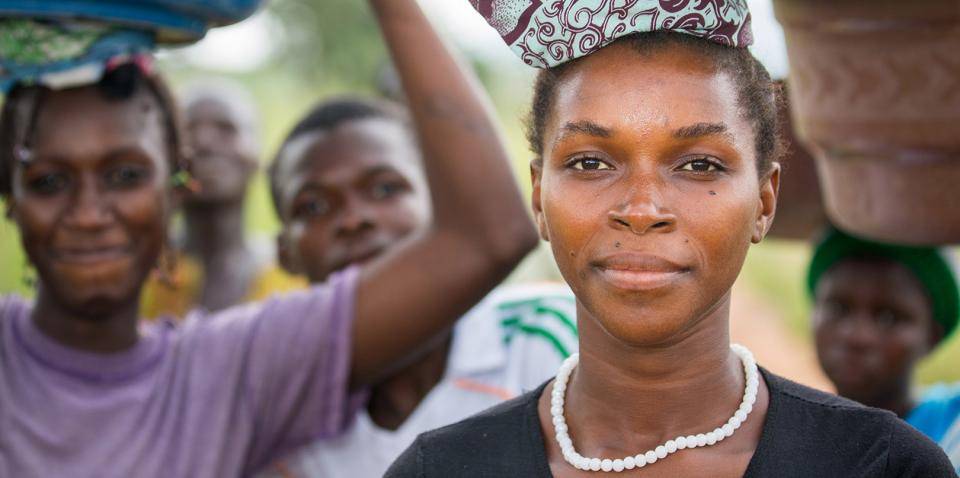
Training farmers
Training enables farmers to grow cocoa sustainably and responsibly, increase their yields and improve their family’s livelihood. Callebaut and the Cocoa Horizons Foundation also commit to training young generations of farmers and to turning the profession into an attractive career.
Within a three-year cycle, all registered farmers are trained in order to build capacity and raise awareness of sustainable cocoa production practices. The training will cover the following topics:
- Good agricultural practices,
- Functional literacy,
- Child protection,
- Traceability,
- Quality,
- Health and safety.
Paying a farmer premium
Next to the training, a premium will be paid directly to farmers and farmer groups. It increases their income from cocoa farming and enables them to invest in their farms and communities.
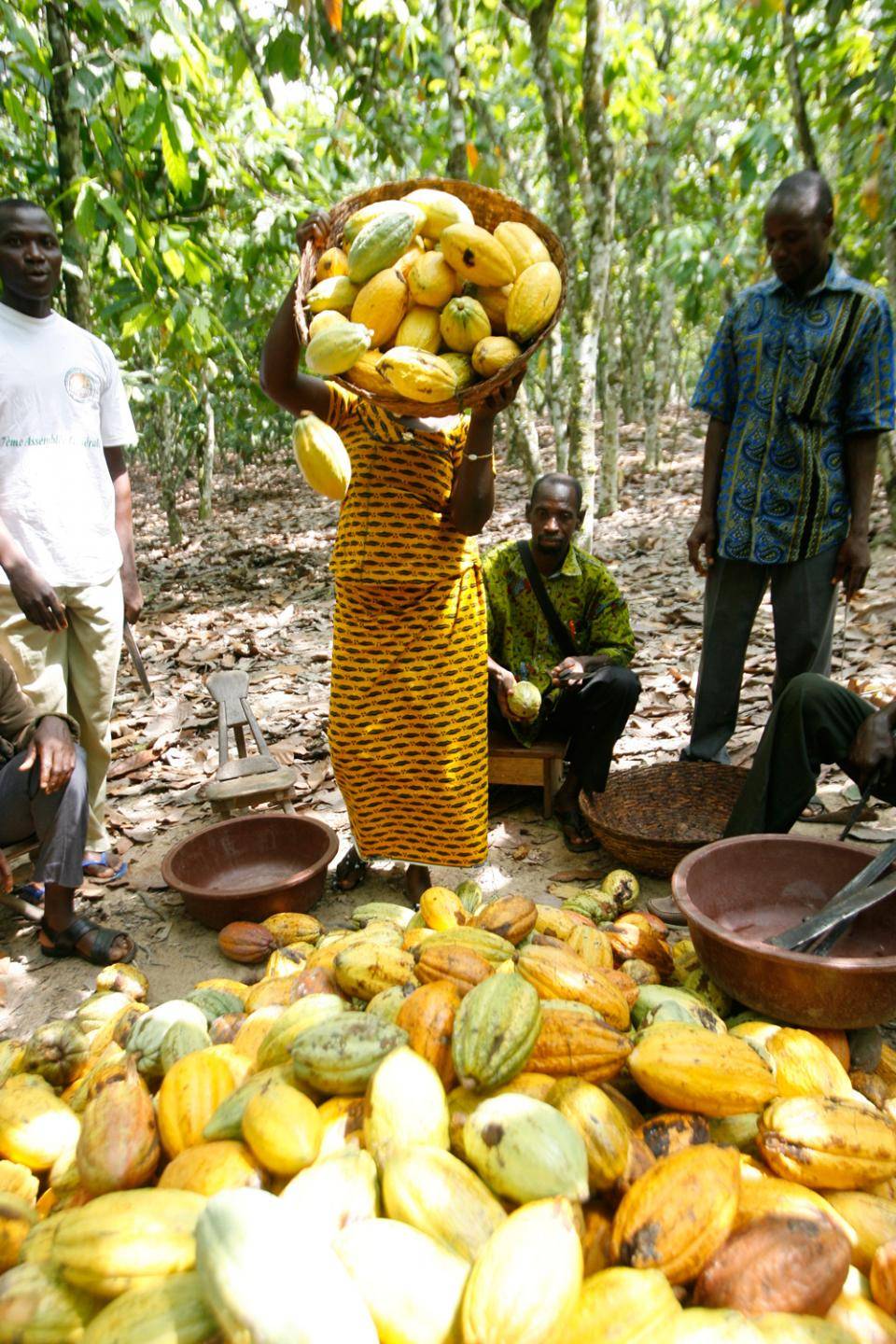
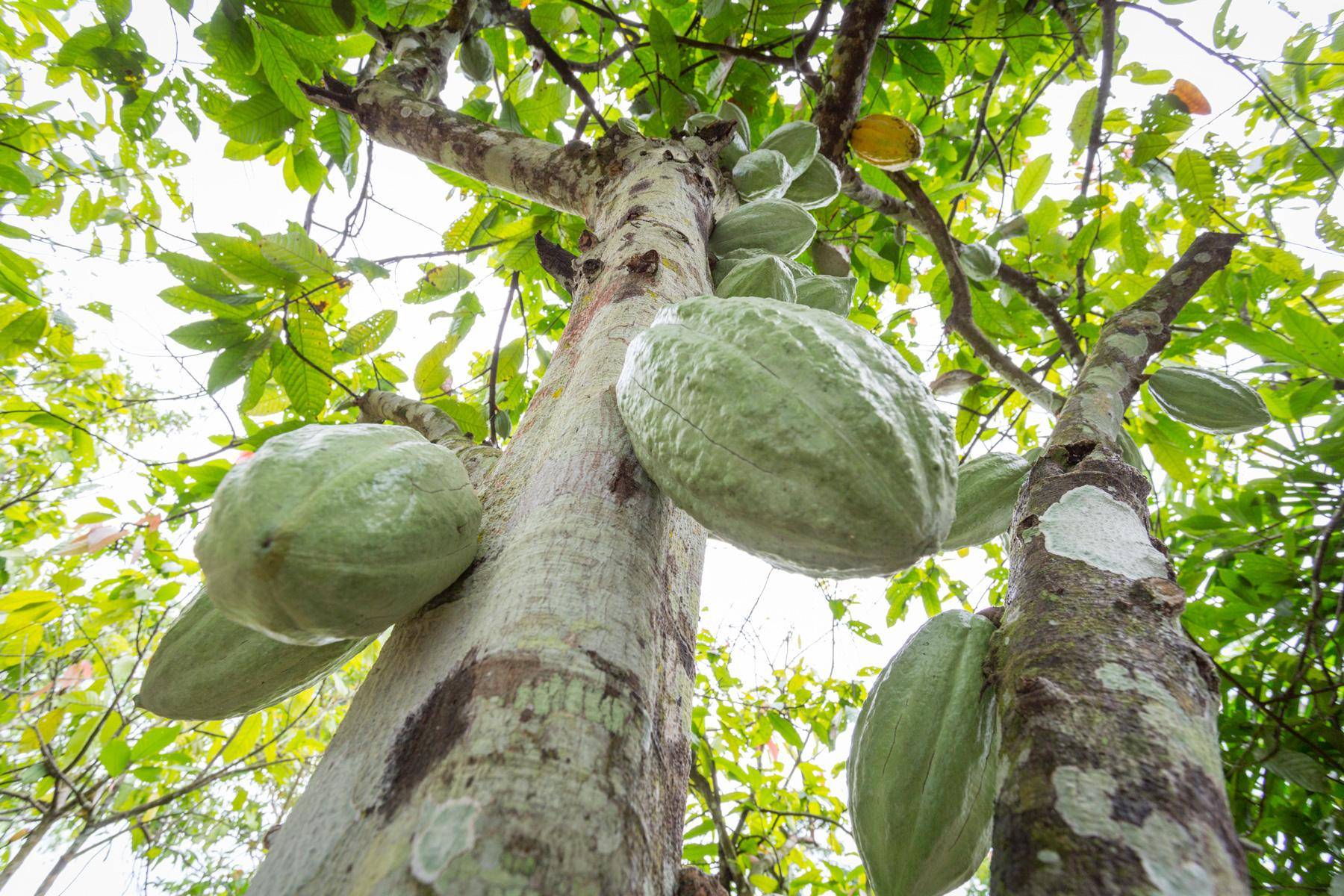
Strengthening cocoa farmer communities
Together with our partners, we take a long-term view, working with farmers to improve cocoa production practices while at the same time addressing critical social challenges in communities where farmers and their families live. Rural communities often lack basic infrastructure and services, including access to water, basic healthcare, and schools. That’s why we commit to contribute solutions in four key areas: education, child protection, women’s empowerment, and health.
Education
Education is the cornerstone of development. In addition to promoting school enrollment and attendance, we contribute to infrastructure when communities lack adequate primary and secondary school facilities.
This includes building and furnishing classrooms, building and furnishing canteens for school meals, constructing separate latrines for boys and girls, providing solar panels for lighting, and building teacher housing to attract and retain qualified staff. Helping to meet the expressed needs of communities and farmer groups, we aim to provide more accessible, safe, and adequately equipped learning environments for children in cocoa-growing areas.
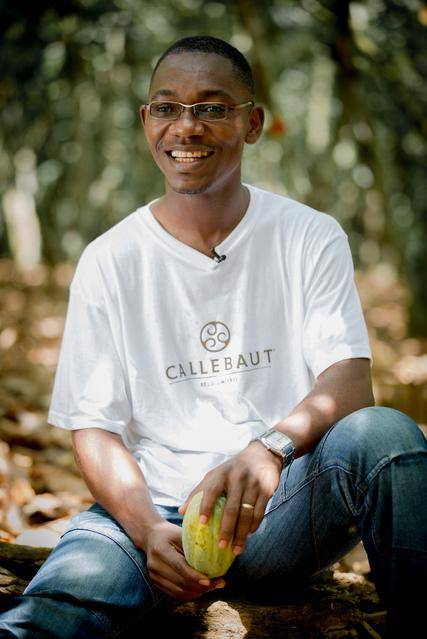

I hope to set an example for other women in my village, so that they can see that there’s a way for them to have financial independence and to be strong and proud. When I train other women, and I see the effect it has on them and their confidence and independence, it fills me with pride. Every woman should have the opportunity to feel that way.
Yvette AYEKOUE ANIN, farmer/farmer trainer, Côte d’Ivoire
Child protection
Our vision of thriving cocoa communities is one in which all children can attend school and are protected from harmful work. Together with partners, we promote the importance of schooling in our farmer training, and work with communities to raise awareness about child labor, better understand its causes, and develop constructive solutions.
Women’s empowerment
Women’s inclusion in training, farmer group administrative and management activities, and other business development opportunities are key priorities. We support literacy and business skills training, and work with women and community-based women’s groups to create income generation opportunities.
Health
Farmers, families and communities need easy access to clean, safe water. However, this basic life necessity is often elusive in rural communities. We work with communities to provide boreholes in schools, and water filters for schools and households in remote areas. We also build school latrines, promote WASH (water, sanitation, hygiene) training, and support initiatives to improve farmer access to basic health care services, including a health insurance program, vaccination campaigns, and free medical check-ups.
Find out what we have achieved so far

